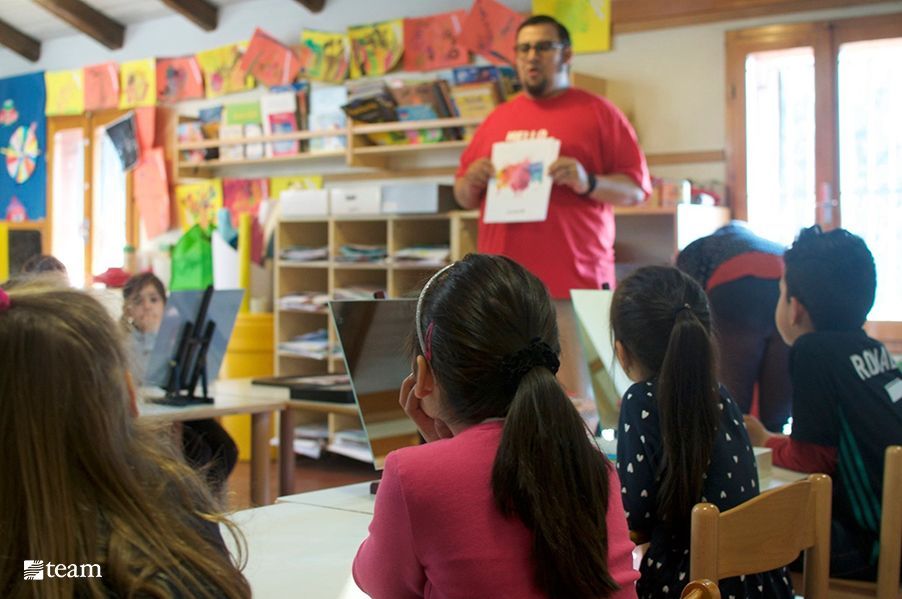Have you ever thought about how envy plays out in culture? In Western capitalistic societies we do not usually think about envy, though it is a universal human emotion. Many people in the Majority World take steps to avoid becoming the target of envy. Being envied (or perceived as envious) carries significant social, and sometimes material cost.
Envy is a feeling of disappointment or ill-will at the advancement of another person in happiness, success, reputation or the possession of anything desirable. It can be characterized by “I wish I had what you have,” or more intensely by “I wish you did not have what you have!”
An ideal of American culture is that wealth can be created and accumulated based on an individual’s effort. Though results are not equal for everyone, we generally think that anyone can “succeed” if they just work hard enough. We learn to live as if the envious person can be ignored.
But in collectivistic cultures (identity is in the group), envy can be especially latent and dangerous. George Foster, an anthropologist who studied cultures, coined the term “view of limited good.” This view considers all that is good, needful and desirable in life to be in limited quantity. Much like the pieces of a pie, good cannot be created but only distributed.
Many in the Majority World do not want to get conspicuously ahead of others or lag conspicuously behind. It is assumed that anyone getting ahead does so at the expense of others, by grasping a greater share of the “good.” Someone else has been “robbed.” When this happens, the community uses various leveling mechanisms (like criticism, gossip, threats or violence) to limit the successful one and restore equality.
Imagine the misunderstandings that happen when someone from a Western culture works cross-culturally where the envious person cannot be ignored. A clash of these worldviews can cause big problems.

In countries like Indonesia, resources are seen as shared by the community. Jealousy can occur when one individual is seen as receiving a greater share than the group. Photo by TEAM
Discovering Envy in Relationships
I served in Indonesia as an instructor in a small denominational Bible college, training pastors for the national church. I was also the ministry area leader for our mission and spent a lot of time with national church leaders in strategic planning for church ministries.
These roles put me in close contact with Sani, a young leader who divided his time between the Bible college and church. He was hardworking with good ideas, effective leadership skills and a sincere faith in Christ. Sani was from the first graduating class of the Bible college, which made him the “older brother” of other graduate workers. As we collaborated on various projects, I hoped to multiply my influence by helping Sani succeed with his ministry plans. For example, the college needed a new chapel building, so I promoted it in the United States and obtained funding.
Yet, it was discouraging to watch Sani’s increasing troubles with his peers. They distrusted and criticized him, even though he was trustworthy with money and did quality work. The interpersonal conflicts escalated over time until it became very difficult to make progress on new initiatives. A few years later (after leaving Indonesia), another Indonesian leader confided to me that they felt Sani had a greater share of my support than they . In his words, “The money for projects seemed to follow Sani more than anywhere else.” Ouch! That hurt.
There are other complexities to this story, but a critical lesson is that I did not perceive the clash of my formative individualistic culture and the collectivistic culture of Indonesia . I felt supportive of the others, and Sani was not the only hard worker, but I trusted him more. To my way of thinking, his ideas seemed more sound, and he got results. He helped me grow as a missionary. Anyone else would have my same trust and support as they showed progress in their abilities.
My focus was on individuals, and their focus was on the group. They felt the distribution of “good” was out of balance and needed to be leveled.

Missionaries must be culturally aware in order to build meaningful relationships with individuals and the community. Photo by TEAM
Practical Steps for the Missionary
As you read this, you may find yourself in a different situation than me. Maybe you relate to a limited part of a church body or a smaller group of people. Perhaps those you serve are well-resourced and do not look to you as the access point to what is a desirable “good.” But to the extent that you share your time, energy, influence and resources with others, you may want to consider some lessons I have learned since my time in Indonesia.
- It is important to tune into the way relationships work in the group you serve. Most likely, you work in a much less individualistic culture than your own. People may not talk about envy, but they are quite aware of its presence and effect.
- Be mindful of how your influence or resourcing may promote the advancement of someone ahead of his or her peers. It may set them up as a target of envy, which is not helpful in the end. Even leaders appointed by the group can face this risk if their advancement is too far ahead of others. This is a challenge for those of us who grow up thinking each individual should have the freedom to earn, accomplish or succeed without being limited by others. But in many non-Western contexts, belonging to the group has a higher value. No one goes it alone, and that means maintaining group favor.
- Learn to think in terms of the group , using your influence and resources in a way that benefits the whole group as much as possible. Projects that equip the group rather than individuals are best. These should be appropriate for the context and sustainable for the long run. The most effective step is to work through the plans, requests and management of the group. Take time to listen to their plans and priorities. If you do not agree with those priorities or feel the project may be unrealistic, keep talking and listening until the plan is mutually satisfying.
- Consider how you are affected by envy, just like everyone else. In the West, we often channel our envious feelings through a competitive approach of keeping up with or surpassing others, even in ministry! How hard is it to truly rejoice with a colleague who has accomplished something we haven’t yet? As we become honest about ourselves, we will recognize a “me too” factor that requires the grace of God for true freedom.
- In humility, initiate honest conversations about envy, its effects and the solutions God offers through his power (see especially Philippians 2:5-11 and I Corinthians 13:4-7 ). These conversations are needed in our mission teams and with our host culture believers. This can be the means to overcoming conflicts that take place between well-meaning followers of Jesus who may not realize how cultural formation needs transformation.
Ultimately, the envious person can never be appeased and no approach will totally eliminate the possibility of envy. We should be as wise and understanding as possible, but it takes the transforming power of Jesus to bring unity and progress.




















